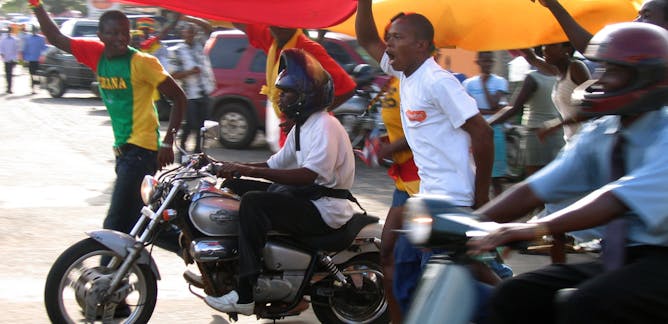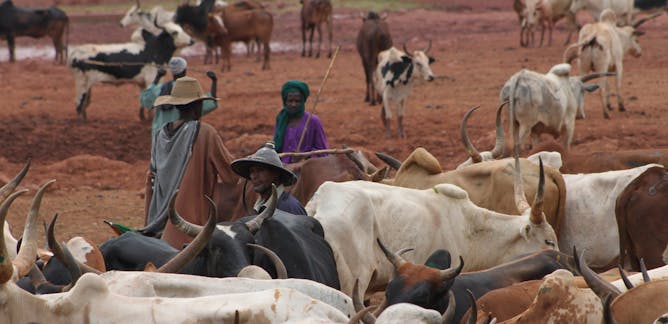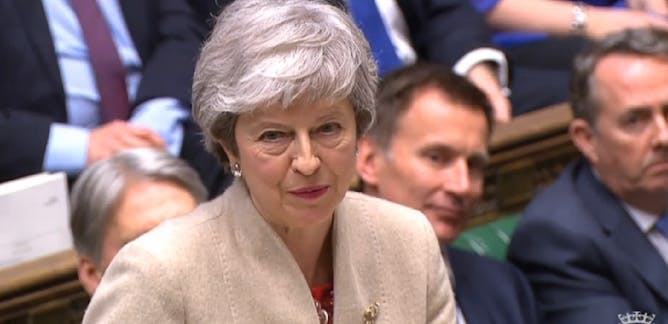|
The "Hawks", "Invincible Forces" and "Azorka boys" are just a few of the vigilante groups that threaten Ghana's peace and security. These gangs, mostly made up of young people, are supported and formed by political parties that use them to act on their behalf. Justice Tankebe explains what can be done to tackle the problem.
The recent massacre of 157 villagers in central Mali underscores the age-old conflict between nomadic and sedentary groups. But apart from the historic grievances, many other recent factors – including jihadism – have contributed to the increased tension between ethnic groups, writes Stig Jarle Hansen. To make matters worse, the central government is either unwilling or unable to act.
In a little over a month, 27 million South Africans are expected to vote for national and provincial leaders. Election campaigns are gaining moment as parties try to woo voters. But, as Steven Friedman argues, none of the parties are addressing the most pertinent problem facing the country – a weak economy that’s failing to create jobs and sustain livelihoods.
|
Top Stories
|

Justice Tankebe, University of Cambridge
In Ghana vigilante groups are formed to act on behalf of political parties.
| |

Stig Jarle Hansen, Norwegian University of Life Sciences
The absence of a strong government in Mali
allows jihadists to enter new areas and flourish.
|
|
|
Politics + Society
|

Steven Friedman, University of Johannesburg
There is a huge divide between what is important right now and what the election is likely to be about.
| |

Selina Palm, Stellenbosch University
At local level some congregations are bravely creating alternative models where LGBTIQ people can feel safe and be accepted
|
|
|
Environment + Energy
|

Simon Beard, University of Cambridge; Lauren Holt, University of Cambridge; Paul Upchurch, UCL
Growing evidence suggests that the extinction of the dinosaurs involved profound, complex and interconnected changes to the global systems that support life. Much like we are facing today.
| |

Nick Scroxton, University of Massachusetts Amherst; Laurie Godfrey, University of Massachusetts Amherst; Stephen Burns, University of Massachusetts Amherst
A series of new studies sheds light on the population crash and extinction of the giant birds, lemurs and more that roamed the island until around A.D. 700-1000.
|
|
|
From our international editions
|

Kenneth Armstrong, University of Cambridge
The prime minister asked MPs to support her withdrawal agreement, leaving the future relationship for later. Her plan backfired.
| |

Tom Solomon, University of Liverpool
Precedents exist for making people have certain vaccines. Perhaps it's time to extend this.
|
|
|